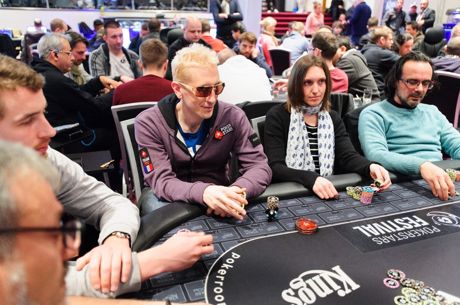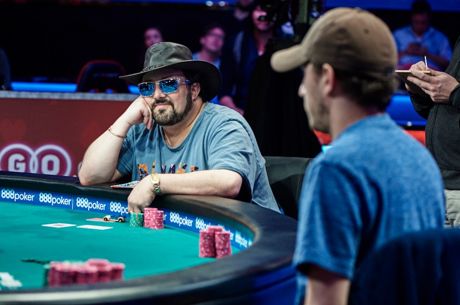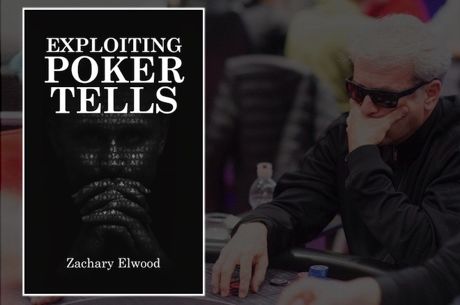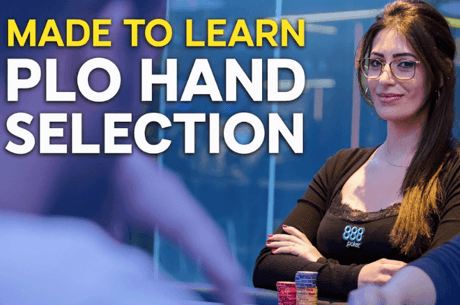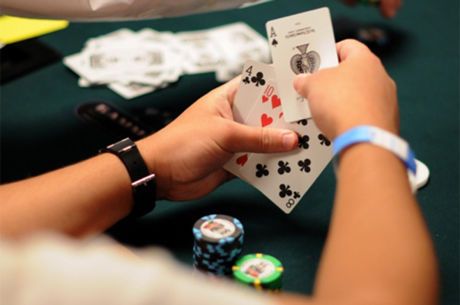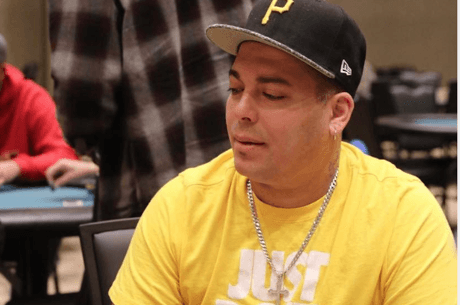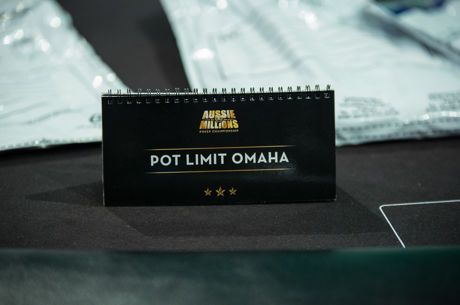WSOP PLO Championship Winner Talks About Tells in Pivotal Hand

Tommy Le won his first career World Series of Poker bracelet this summer in the $10,000 Pot-Limit Omaha Championship, earning him $938,732 for topping a 428-entry field
A few hours before he won, a pivotal hand came up early at the final table where Le folded a set of kings on an A?K?9? board to a single raise on the flop versus the other big stack, Scott Clements.
You can watch the footage from this PLO event on PokerGO �� the hand itself comes at the 24-minute mark, and commentators Doug Polk and David Tuchman discuss the hand further around 105 minutes into the archived stream.
After winning the event, Tommy gave an interview to Tatjana Pasalic in which she asked him to describe how this hand went down. I've edited his response slightly.
Tommy Le: A player limps on the button. I have kings. I think they were double-suited. [He had K?K?Q?6?.] So I raise the pot. Scott had me covered a little bit. We were two of the biggest stacks. And I knew, when I raise pot, I saw Scott look at my stack, and I think he was trying to calculate if he could re-pot me back and get the majority of his chips in.
So he opted to call. I wasn't really sure if he had aces, but I knew he had a big hand. Like, he didn't hesitate and he called pretty quick. So I knew it was one of those hands where�� the hand plays itself.
So he calls. Button folds. Flop comes A?K?9?. I make a standard bet, like a third of the pot, I think it was. [He bet 175,000 into a pot of 450,000.] And then he kind of like, when I bet, he didn't really hesitate to raise. It took him a few seconds to make it 600, I bet 175K, he made it 600K. [At this point, Le had 3.4M behind and Clements had him covered.]
When he made it 600, I knew if he had AxKx he would probably call. Nines, same. Maybe raise. But I think he would have to think a little more than insta-raise.
So when he did an insta-raise I felt like he either had, maybe, KxQx, Jx10x. But even that, he might call. Or like an AxKx... I guess he could raise the AxKx, but my first instinct is to call. I have second set, so I should call there like 99 percent of the time.
But then when I was tanking, I saw him breathe.
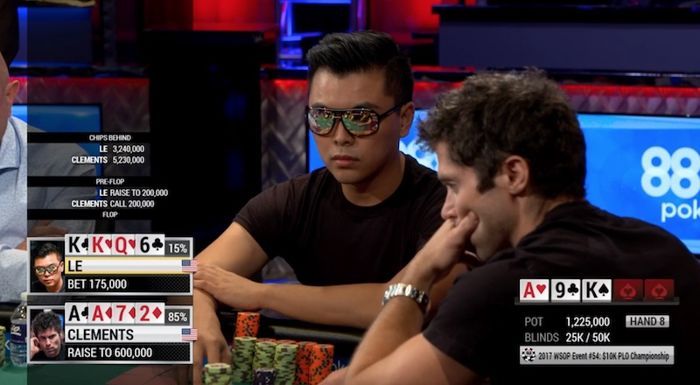
I remember looking at him, my instinct was just to call. I was trying to figure out what I'd do on the turn if I call. I remember looking at him and he made this weird breathing gesture. He was breathing really hard. And we all know Scott's a pro, right? This is not his first rodeo. For him to make that play, I felt like he was baiting me in. And the more I looked at him, the more he got nervous.
So right there, I was like 99 percent sure he had aces. So obviously I laid the hand down.
Clements indeed had A?A?7?2? for a set of aces.
Here's a rundown of the behaviors Le talks about:
- Clements looked at Le's stack before calling Le's preflop raise, which Le thought meant Clements was considering a reraise.
- Clements' quick call preflop of the pot-sized raise, which Le also interpreted as strength and some sort of "no-brainer" hand.
- A pretty quick raise on the flop. Le thought this was polarizing, and combined with the fact that Clements would hardly ever be raising medium-strength/weak hands here, made very strong hands very likely.
- An over-exaggerated breathing from Clements after raising the flop. Considering Clements is an experienced player and unlikely to be genuinely nervous, Le thought this was likely to be a false tell.
Not being there and not having studied Clements' behavior before this hand, it's hard to know for sure if these were real leaks on his part or not. I do think it's possible Le made this fold mainly for fundamental strategy and situational reasons and could have overemphasized the tells in the excitement of the post-tournament interview.
But in any case, here are a few thoughts about the behaviors Le talked about.
Two of the most important factors in this hand are (1) both players were the biggest stacks at this final table; and (2) Clements is an experienced professional player. One consequence of these two facts is that Le would know Clements would be unlikely to want to get involved with him without a very strong hand.
Regarding the bet-timing, the fairly quick actions on Clements' part are polarizing, which is true of quicker significant bets in general. If Le thinks Clements is very unlikely to want to get involved without a very strong hand, the quicker actions dramatically strengthen his range. With weaker hands, so Le was thinking, Clements would probably want to consider things more.
It's worth mentioning that quicker bets, in general, skew slightly towards weak hands and bluffs, but that is largely a factor of weaker players feeling more "painted into a corner" and often bluffing quickly �� that is, it's not really a factor for strong players who don't feel pressured to bluff in that way.
Le's point about Clements glancing at his chips is an interesting one. That's not something I've ever talked about in my books or videos, mainly because it's a behavior whose meaning I think can vary a lot.
I can imagine how something like this could be meaningful in such a high-stakes situation at a big final table, where you're really keyed into someone's behavior. Still, I think it's entirely possible Clements, or any player, would be capable of glancing at a raiser's chips before getting involved no matter what they had.
The seemingly-nervous breathing is the behavior Le mentions that is most likely to be meaningful in my opinion. Sometimes players making big bets with strong hands do try to feign relaxation by doing unusual things, like trying to look nervous in various ways �� e.g., breathing hard, furrowing their brow, putting on a tense face. In this way, false tells can become just plain old tells.
Also, players with strong hands are generally more physically loose and breathe more loosely in general, so it's possible this wasn't even an attempt at a false tell, and was just a straightforward leak of relaxation.
Again, I have no idea if this was an actual tell on Clements' part or if he's balanced with this behavior and Le just happened to notice it and wrongly think it was meaningful. But it's not out of the realm of possibility a very experienced player would have such a leak.
I have plenty of examples of experienced players doing something unusual and imbalanced when betting strong hands. Most reliable reads of players making big bets are strong-hand reads just stemming from players doing things they wouldn't be likely to do when bluffing.
Finally, even if all these behaviors were only slightly reliable on their own, seeing them all together would be even more helpful in making a decision. It's always nice when you get several points of data pointing you to the same conclusion. That is where some of the best, most confident reads happen.
Zachary Elwood is the author of a poker tells trilogy of books, including his most recent, Exploiting Poker Tells. He also has a video series available at www.readingpokertells.video.

